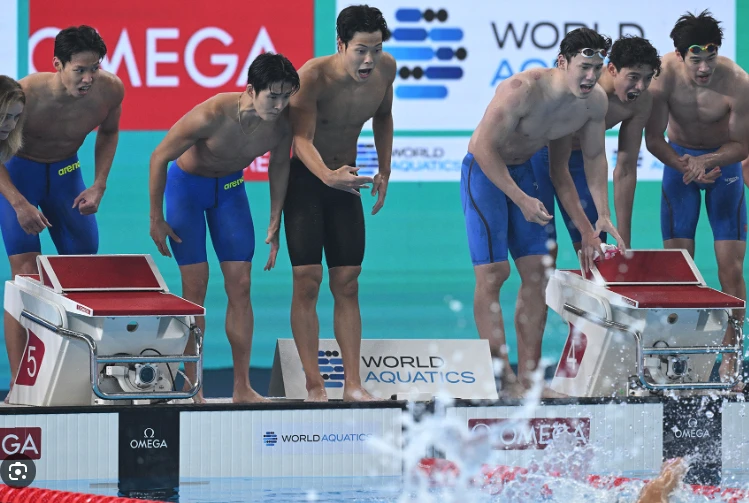Chinese swimmers failed doping tests ahead of Tokyo Olympics: NY Times

Stay tuned with 24 News HD Android App

Twenty-three Chinese swimmers tested positive for a banned substance ahead of the Tokyo Olympics in 2021 but were allowed to compete after world governing bodies secretly accepted China's findings that they had ingested it unknowingly, The New York Times said Saturday.
The athletes included nearly half of the swimming team that China sent to Japan, with several going on to win medals, including gold, according to the report.
Many are expected to be in contention again at the Paris Olympics this summer.
The newspaper reported that they tested positive for a prescription heart drug, trimetazidine (TMZ), that can enhance performance at a domestic meet in late 2020 and the first days of 2021.
But it was determined by Chinese anti-doping authorities that they ingested the substance unwittingly from tainted food and no action against them was warranted.
The Times cited a review of confidential documents and emails, including a report compiled by the Chinese anti-doping agency and submitted to its global counterpart WADA.
'No fault or negligence'
It said WADA and swimming's governing body World Aquatics, which at the time was known as FINA, decided not to act due to "a lack of any credible evidence" to challenge China's version of events.
WADA, in a statement on Saturday decrying "some misleading and potentially defamatory media coverage this week", said that it had "ultimately concluded that it was not in a position to disprove the possibility that contamination was the source of TMZ and it was compatible with the analytical data in the file".
"WADA also concluded that, given the specific circumstances of the asserted contamination, the athletes would be held to have no fault or negligence."
WADA's senior director of science and medicine Olivier Rabin added: "Ultimately, we concluded that there was no concrete basis to challenge the asserted contamination."
World Aquatics confirmed to the Times the cases had been reviewed by a doping control board and were subjected to independent expert scrutiny.
"World Aquatics is confident that these AAFs (adverse analytical findings) were handled diligently and professionally, and by all applicable anti-doping regulations, including the World Anti-Doping Code," it said.
But the United States Anti-Doping Agency said the swimmers should have been suspended and publicly identified, calling WADA's lack of action "a devastating stab in the back of clean athletes".
The organisation's chief executive Travis T. Tygart claimed he had provided WADA with allegations of doping in Chinese swimming multiple times since 2020.
WADA said that "the information provided to us by USADA and others was reviewed on each occasion in line with our normal procedure, and assessed according to the criteria stipulated within our Confidential Source Policy".
"The data held by us clearly showed that there had been no attempt to hide the positive tests as they had been reported in the usual way by the Chinese authorities. Therefore, based on the available information and a lack of any credible evidence, the threshold for WADA I&I (Intelligence and Investigations Department) to open an investigation was not met."
'Crushing' news
Tygart called the news of the failed tests "crushing".
"It's even more devastating to learn the World Anti-Doping Agency and the Chinese Anti-Doping Agency secretly, until now, swept these positives under the carpet by failing to fairly and evenly follow the global rules that apply to everyone else in the world. Tygart said in a USADA statement on Saturday.
"Our hearts ache for the athletes from the countries who were impacted by this potential cover-up and who may have lost podium moments, financial opportunities, and memories with family that can never be replaced.
"They have been deeply and painfully betrayed by the system. All of those with dirty hands in burying positive tests and suppressing the voices of courageous whistleblowers must be held accountable to the fullest extent of the rules and law."
China's anti-doping authority was not immediately available for comment.
There was no immediate reply from China's swimming association when contacted for comment.
